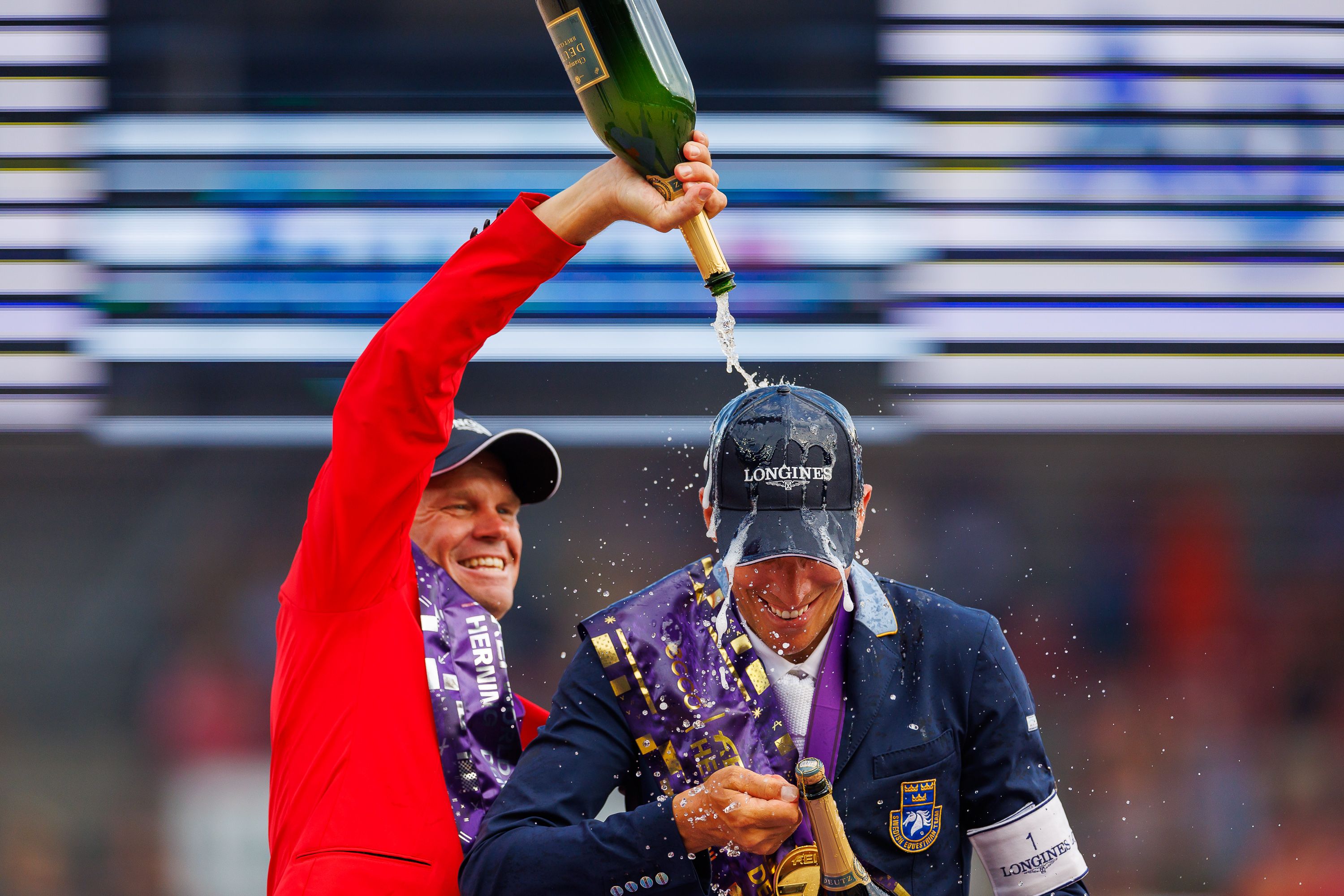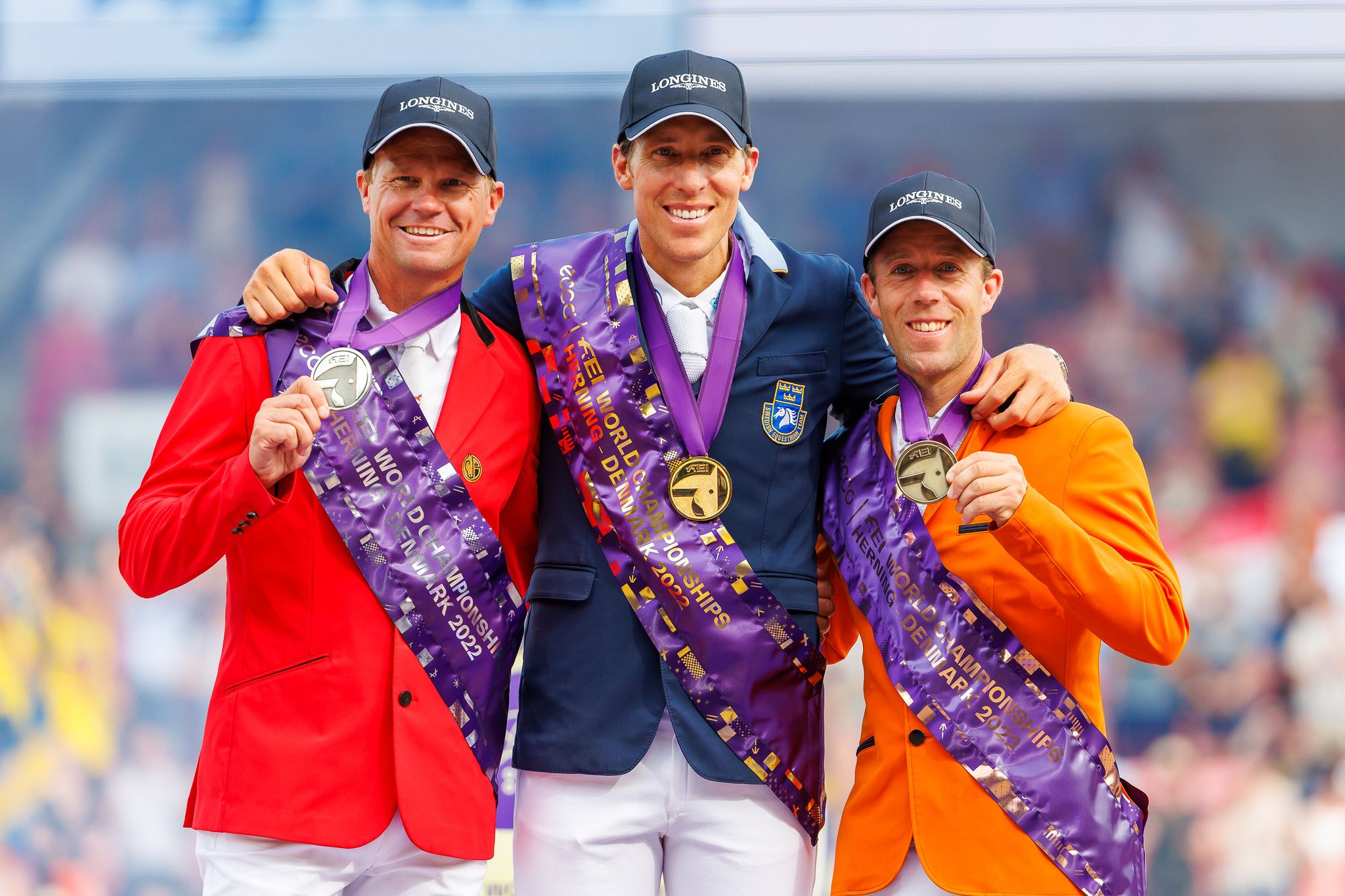Want to meet the Hermès U.S. Show Jumping Team for the Alltech FEI World Equestrian Games in Normandy, France? Here they are… Lucy Davis will ride Old Oak Farm’s Barron Kent Farrington will ride Amalaya Investments’ Voyeur Beezie Madden will ride Abigail Wexner’s Cortes ‘C’ or Simon McLain Ward will ride Sagamore Farms’ Rothchild Traveling Reserve: Margie Engle with Elm Rock Partners, LLC’s Royce An interview with the USA team chef ... We heard that you joked that you wished you could take all 10 short-listed riders to Normandy. Is that true? Ridland: I did say that! Of course it made picking the team difficult. It’s the problem we were hoping to have in the beginning; we’d said, “Let’s hope that we have a problem picking because they all could go and do well.” Along the lines of over-stating and not putting too much important on a few successes, I do remember back in 1984 when it was said that the team we left behind, that didn’t make the gold medal Los Angeles Olympic team, would probably also have gone in as the favorites to win the silver. That was a very unique time in our history and I don’t think we’re necessarily in the same situation, but I will be so bold as to say that I could make two teams of five riders from our short list and be competitive with both in Normandy. We’re in a wonderful situation. Of course it made team selection a little more difficult, but that's a great problem to have. What does that say about the depth of talent in the United States? Ridland: One thing I heard two years ago when I started as chef d’equipe was that we didn’t have a depth of riders or horses. If you’d listened to some of the people, you’d have thought things were dire. I said at the time that I didn't believe that at all. I believed—and still do—that if we muster all our resources from our veteran riders down to our new talent on the horizon, then the lack of depth would prove to be a myth. I caution myself all the time—it’s really easy to get too high with your successes and too low with your failures. I want to make sure we do keep the proper perspective. They tried to get me to say in the press conference at Dublin that we were sending out a warning shot to the world with our results, and I won’t say that. We know in our sport how things can change from day to day. But I do believe that the depth that we have is strong and our future looks very good. If you had imagined a lead-up to Normandy, would this have been the ideal preparation? Ridland: These Nations Cups were labeled observation events, but I looked at them and felt all along that they were more about preparation than team selection. There’s no question that Normandy is incredibly important, it’s the most important thing on the horizon this year. But it is one event in the great scheme of things, and there are other important events two and four and eight years down the road. I feel that we’re talking about preparation for the long haul, not just for this year’s World Games. They will have served very well as preparation for the four riders that go into the ring at Normandy, but they’re also great preparation for all the other big competitions down the road. It was one of the aspects that I thought was really important—using our veterans and young riders, putting them together on the same teams, giving everyone experience at the highest international level. Spruce Meadows, Rotterdam, Aachen, Hickstead and Dublin are the biggest and toughest CSIO five-stars in the world. In my planning it out, we made sure not to fall into the trap of over-using one group of horse/rider combinations and under-using others. We evened out the load and I think that’s really important as we prepare horses so they’re fit and rested and fresh not just for the World Games, but also for what comes after that. This fall and next year and beyond, those horses need to be ready. Does going to Normandy off the great results at the last few Nations Cups help? Ridland: I do remember from my days as a rider, when you get on one of those rolls, it just feeds on itself. I think if you talk to a golfer about getting in the zone of their swing or a baseball player when they’re hitting really well, we’re the same type of sport. It’s a skill sport, so if you get in a positive zone, things come a while lot easier. Going in with confidence is certainly better than the alternative!
Hermès U.S. Show Jumping Team World Games Team Announced
-
categories: World Equestrian Games , USA



